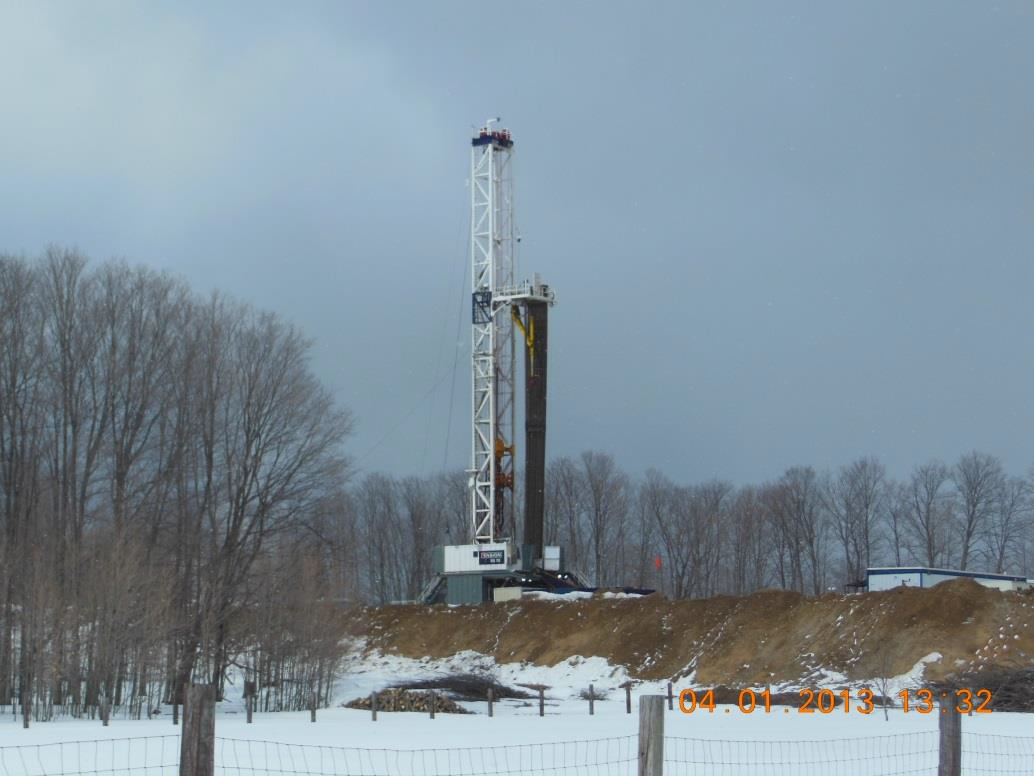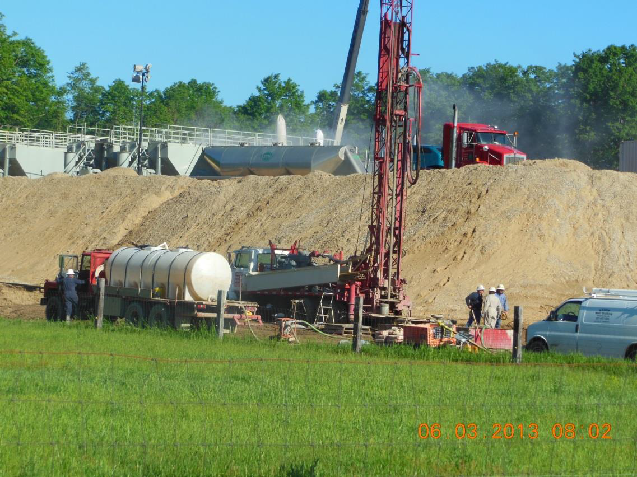Read the article on MLive here.
May 22, 2013 at 12:45 PM, updated May 22, 2013 at 1:06 PM
ROCKFORD, MI – A group of 15 citizens and township leaders gathered at the Cannon Township Hall on Wednesday, May 22, to create regulations that may limit hydraulic fracturing, or “fracking,” if an oil or gas well is ever drilled in the township.
Jim Olson, a Traverse City lawyer and founder of FLOW (For Love of Water) of Michigan said the session is the first of three he will lead with the goal of developing a zoning ordinance that would limit hydraulic fracturing in the township, located east of Rockford in northeastern Kent County.

Jim Olson, founder of FLOW (For Love Of Water) of Michigan, leads a meeting with citizens at at meeting in Cannon Township on Wednesday, May 22. (c) Jim Harger | MLive
“We will develop a package that is ready to turn over to your planner and your attorney,” Olson told the group at the outset of the two-hour meeting.
Earlier this month, the township’s board adopted a six-month moratorium on any “fracking” related activities while the board studies possible restrictions on “ancillary” activities.
Currently, there are no applications to drill oil and gas wells in the township or Kent County, according to the DEQ. Some private and public lands have been leased by oil and gas exploration companies.
“Fracking” pumps high volumes of water, sand and chemicals into oil and gas wells in an attempt to improve their flow.
Though “fracking” has been used on Michigan oil and gas wells for 60 years, environmentalists are concerned because “fracking” on modern horizontally drilled oil wells use millions of gallons of groundwater.
Olson told the group federal and state environmental laws exempt “fracking” activities while local governments are restricted from regulating the practice.
“We don’t take a position on whether fracking is good or bad,” he said. Banning the practice is not legal but local governments can take action to protect their water and air quality.
Banning the practice, Olson said, “is a difficult path to go down.” In fact, the state law says local groups are barred from regulating oil and gas drilling, he said.
But townships can govern “ancillary activities” such as water wells, trucking access roads, “sweetening facilities” that process the oil or gas, chemical and mixing stations and transfer stations, Olson said.
Olson said a special use permit could be developed “to at least let your citizens know what’s coming.”
Cannon Township resident Mary Reusch said she attended the meeting because she and her husband are worried about the possibility of losing the trees in the Cannonsburg State Game Area, which lies next to their home.
“It would break my heart to see those trees come down,” said Reusch, who said her husband walks through the forested area almost daily.
Reusch said she also is worried about the impact “fracking” could have on Meandering Creek, which runs through the 10-acre parcel on which they have lived for the past 13 years.
Cannon Township resident Shirley Kallio said she attended the meeting because a parcel of farmland near her home has been leased for oil and gas exploration.
FLOW leaders also are meeting with citizens in Muskegon County’s Montague Township and Kalkaska this week to discuss similar actions.
Olson, who plans to meet with the group again on June 19, gave the group “homework,” asking them to develop a rational for protecting their resources.
In the greater Grand Rapids area, the only oil and gas well that has permission to “frack” is located in Ionia County’s Ionia Township.
The well, which was drilled last fall on a farm north of I-96 by Texas-based Rosetta Resources, has not yet been “fracked” or completed, according to Bill Mitchell, a geologist with the Department of Environmental Quality.





